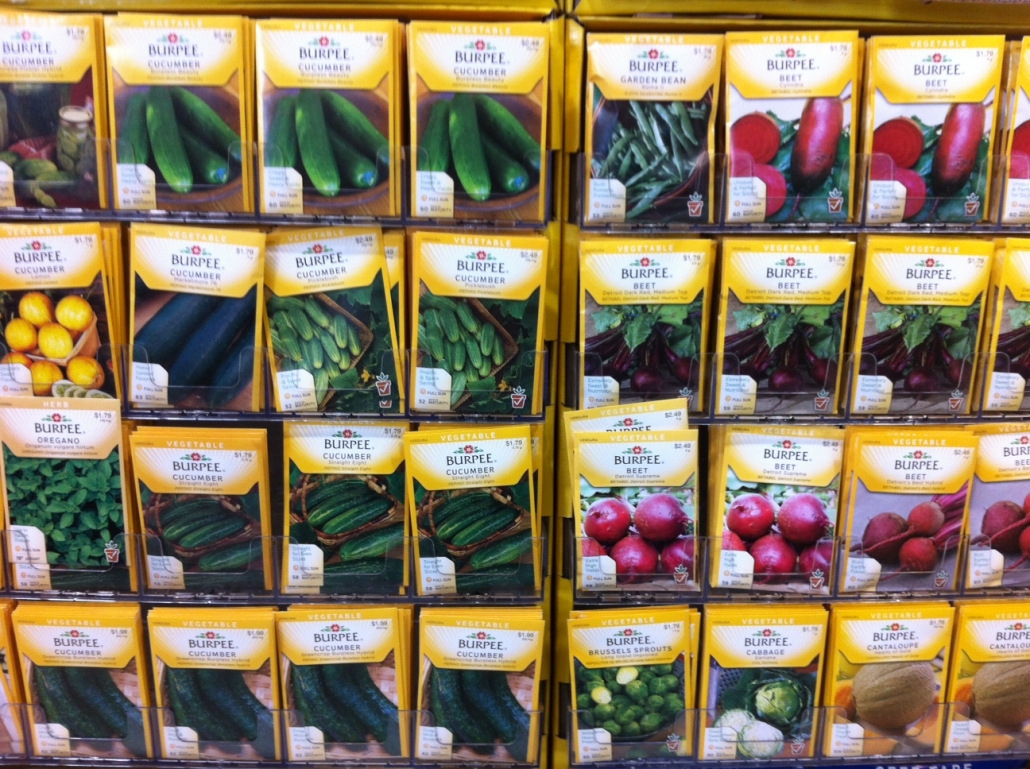
 by Jude Hsiang
by Jude Hsiang
In the last half of the 20th century gardeners typically bought seeds from catalogs and store displays. This convenience separated us from the experience of saving seeds from our own gardens and many of us lack the agricultural knowledge that our ancestors had used for thousands of years. Recently, many people have returned to saving seeds, sharing them with fellow gardeners and even developing their own special varieties of favorite plants.
Many books have been published and seed saving organizations have been created as a result of this renewed interest. Locally, seed libraries like the one at the Albert Church Brown Library in China Village, have provided a way for neighbors to share extra seeds, save money, and try new varieties. Maine’s own seed companies have also contributed their extras to seed libraries and to the University of Maine Extension’s Master Gardeners and 4-H members, ensuring access to garden plants that were successful in trials for the varieties best adapted to our growing conditions.
As fall approaches we can look around the garden for those plants that have been especially healthy and productive, as well as old or new favorites. Peas, beans, tomatoes, peppers, and members of the cucurbit family – cucumbers, squashes – are the easiest candidates for seed saving. A bit of knowledge about plant reproduction is needed, but not a great deal. Avoid using seeds from hybrids, often found in commercial seed – hope you’ve saved the packets for that information! – because they will have a mix of characteristics from cross-pollination and are unlikely to resemble the plants you choose, and some may not even germinate. If you have grown several varieties of winter squash, for example, they may have been cross-pollinated by insects, and the result is unpredictable. People who want to keep and improve on one type of squash will therefore make sure they are isolated from other kinds. The best choices for seed savers are self- or open-pollinated varieties, of the referred to as heirlooms, like Brandywine tomatoes or Blue Lake beans.
Peas and beans provide the easiest seeds to save. Just let the pods of a few of your plants mature and dry on the plant, then collect the seeds to store in a cool dry place over the winter. Pepper seeds are easy too. Allow the peppers to stay on the plant until they are overripe and shriveling a bit then collect and store the seeds.
Winter squash seeds can be collected when the outer rind is hard. Let summer squash keep growing past the time for eating until the rind dries and treat it like winter squash. Scoop out the seeds, wash and dry them for storage.
Tomatoes should be allowed to become fully ripe, just like you’d want them for eating. Cucumbers should be left on the vine until they start to get yellow, then harvested and set aside safe from critters for another three weeks. Tomato and cucumber seeds are coated in a gel and need a little more attention. Fermentation, which can get a little stinky, will result in nice healthy seeds. Put the mass of seeds and pulp in a container and add a similar amount of water, then set it in a warm location, but not in direct sunlight. Stir once or twice a day, and the good seeds will sink to the bottom. Pulp, mold, and bad seeds will rise to the surface. After 5 days remove the stuff at the top and thoroughly rinse the good seeds at the bottom. Spread them out on a plate and set them in a warm place to dry for a couple of weeks. This little bit of work will provide you with free seeds of your favorite tomatoes for
Don’t forget to label your seeds!
The flower garden can be a source of free seeds, too. Marigolds are especially easy as their seeds are easy to spot. Some flowers, like some vegetables, are biennial and need two years to produce seeds. A little research at your library or online can give you information on growing more flowers for free.
Modern seed saving has moved out of the garden. In Maine, the Wild Seed Project sells seeds for native trees, vines, grasses, and flowers that are collected by volunteers. The group provides detailed planting information and help in choosing “the right plant in the right place” so we can bring more of our beautiful native plants home to our yards.
© Judith Chute Hsiang
Jude Hsiang Is a retired Extension Master Gardener instructor and member of the China Community Garden.
Responsible journalism is hard work!
It is also expensive!
If you enjoy reading The Town Line and the good news we bring you each week, would you consider a donation to help us continue the work we’re doing?
The Town Line is a 501(c)(3) nonprofit private foundation, and all donations are tax deductible under the Internal Revenue Service code.
To help, please visit our online donation page or mail a check payable to The Town Line, PO Box 89, South China, ME 04358. Your contribution is appreciated!


Comments are closed.